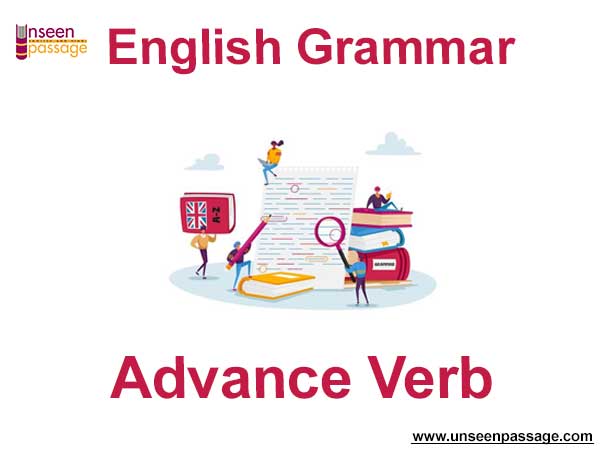Advance Verb Rules English Grammar
Students should refer to the following Advance Verb Rules of English Grammar. These rules have been designed by expert English teachers to help students appearing in English Exams in schools or competitive examinations. You should remember the following Advance verb rules so that you can use them correctly and score good marks in examinations. You should refer to all Rules of English Grammar provided by us to strengthen your understanding.
Advance Verb Rules
Rule 1 – command, force, ask, allow, advice, invite, encourage, compel, geg, order, instruct, imagine, instruct, tell, require teach, persuade, permit, remind, teach, etc are followed by ‘Object +to+v1’
Eg- He forced to do it by me (incorrect)
He forced me to do it (Correct- object+to+v1)
Note- Above form is applicable if sentence is in active voice, If it is in passive voice then they ( command, force………) are followed by just ‘to+v1)
Eg- She was compelled to finish the task.
Rule 2 – ‘Know’ is followed by how/where/when/why and ‘infinitive’.
Ex- I know to make coffee ( Incorrect)
I know how to make coffee.( Correct)
Rule 3 – After let, behold, watch, bid, see, make, feel etc. we use Bareinfinitive (infinitive without to)
Eg- I let him to go (Incorrect)
I let him go (correct)
Rule 4 – Use of bare infinitives after modal auxiliaries (will, would, can, could, may, might, hall should, must, dare not, need not)
Eg- You must to study hard (incorrect)
You must study hard (correct)
Rule 5 – Had rather, Had better, had as soon..as.., had sooner, etc. are followed by Bare Infinitive ( Infinitive without to )
Eg- He had better to go there. (Incorrect)
He had better go there (correct)
Rule 6 – Bare infinitive is used after conjunction ‘than’
Eg- He had better eat than to drink. (incorrect)
He had better eat than drink. (Correct)
Rule 7 – When ‘but’ is used as preposition and is preceded by any form of verb ‘do’, then after ‘but’ bare infinitive will come.
Ex- He did nothing but to sleep. (Incorrect)
He did nothing but sleep. (Correct)
Rule 7 – Every participle must have a subject of reference.
Ex- Being a rainy day ramu decided not to go outside. (incorrect)
It being a rainy day ramu decided not to go outside. (Correct)
Rule 9 – Participles like judging, concerning, considering, referring, regarding, viewing, broadly speaking, etc. do not take any subject of reference.
Ex- Considering the situation, I took the decision. (Here for considering there is no subject of reference still the sentence is correct.)


